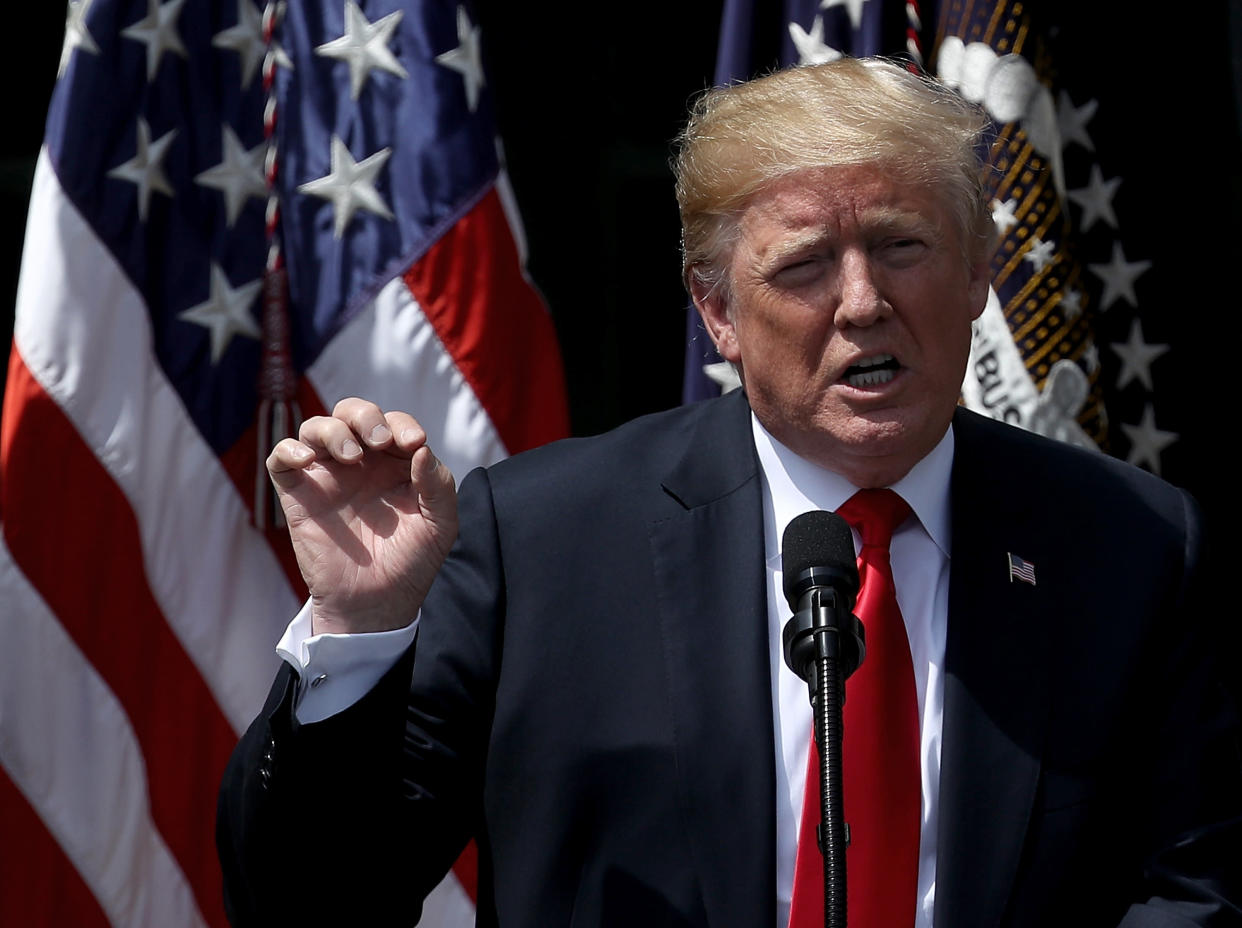Michael Cohen calls Trump a 'cheat,' reveals net worth numbers for Buffalo Bills bid

In 2014, then-real estate developer and reality TV show star Donald Trump attempted to buy the Buffalo Bills. His bid fell short.
In 2016, Trump, not burdened with the task of owning an NFL team, attempted a run at the presidency. That bid succeeded beyond all but the wildest expectations.
In 2019, now-President Trump is facing a withering condemnation from his former personal attorney, and, strangely enough, the Buffalo Bills have resurfaced as a small but key component.
Michael Cohen, the president’s former personal attorney, began testifying before a House committee on Wednesday morning. (Follow Yahoo News’ coverage of Cohen’s testimony here.) Cohen’s prepared opening testimony was received by numerous media organizations, and in that testimony, he used the attempted Buffalo Bills purchase to brand Trump “a cheat.”
“I’m giving the Committee today three years of President Trump’s financial statements, from 2011-2013,” Cohen indicated in his statement, “which he gave to Deutsche Bank to inquire about a loan to buy the Buffalo Bills and to Forbes.”
According to Cohen, Trump manipulated financial records depending on a desired outcome, whether to appear wealthy or not so wealthy. The Bills are but a tiny piece of the overall picture of Trump’s finances, but Cohen is clearly seeking to use that failed purchase as representative of Trump’s business dealings and techniques.
"It was my experience that Mr. Trump inflated his total assets when it served his purposes, such as trying to be listed among the wealthiest people in Forbes,” Cohen said in his prepared testimony, “and deflated his assets to reduce his real estate taxes.”
The specific financial statements relating to the failed Bills purchase were not included in Cohen’s prepared testimony before the House Oversight and Reform Committee. They were released during his testimony, and indicated that Trump’s professed net worth took a substantial jump during the time he was applying to Deutsche Bank for a loan to help with the purchase price. Trump’s stated net worth was as follows:
2011: $4,261,590,000
2012: $4,558,680,000
2013: $8,661,970,000
The additional $4 billion in net worth from 2012 to 2013 was attributed to “brand value.”
Trump had attempted to buy the Bills in 2014, a move that few NFL owners took seriously. “He was, for starters, not considered sufficiently solvent or transparent to proffer a serious bid,” Mark Leibovich wrote in his 2018 NFL expose “Big Game.” “Football owners, as it turns out, get a much closer look at a candidate’s finances than electorates do.”
Cohen, in fact, was involved with the bid, telling the Buffalo News in 2014: "The Bills have a rich history in Western New York, and Mr. Trump's interest is to preserve that.” Cohen argued at the time that Trump’s casino holdings should not prevent him from owning a team; NFL owners had long sought to keep gambling at arm’s length from the league.
Cohen also served as a cheerleader for Trump’s finances at the time, noting, "Mr. Trump's wealth is far greater than what has been reported."
When Trump didn’t win the bid — Terry and Kim Pegula did, at a cost of $1.4 billion — he seethed and took to Twitter:
Even though I refused to pay a ridiculous price for the Buffalo Bills, I would have produced a winner. Now that won’t happen.
— Donald J. Trump (@realDonaldTrump) October 13, 2014
Wow. @nfl ratings are down big league. Glad I didn't get the Bills. Rather be lucky than good.
— Donald J. Trump (@realDonaldTrump) October 10, 2014
Trump also attempted to undercut the Pegula purchase:
The Wilson family should thank me. Pegula overpaid for the @buffalobills because of me!
— Donald J. Trump (@realDonaldTrump) September 19, 2014
I am the only potential owner of the @buffalobills who will keep the team in Buffalo, where it belongs!
— Donald J. Trump (@realDonaldTrump) June 24, 2014
The Bills remain in Buffalo to this day.
____
Jay Busbee is a writer for Yahoo Sports. Contact him at jay.busbee@yahoo.com or find him on Twitter or on Facebook.

